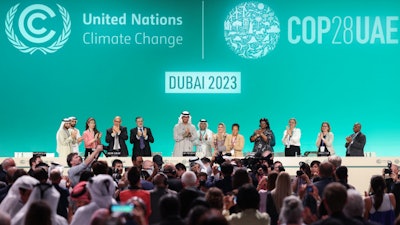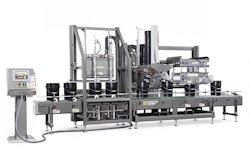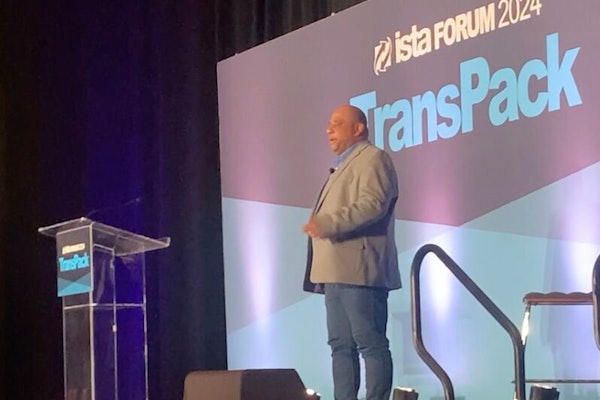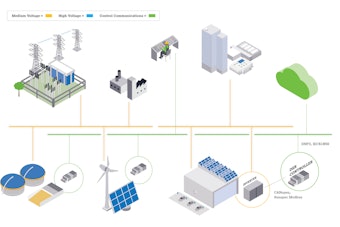
 Ben Miyares, Packaging Sherpa
Ben Miyares, Packaging Sherpa
The agreement is being parsed for clues to its possible repercussions and is still being applauded, criticized, and dismissed by observers at every point on the climate change scale.
That the meeting came to any consensus at all is amazing, since delegates must deliberate under a U.N. protocol mandating a unanimous vote on any declarations. Also surprising was this consensus came in Abu Dhabi, with the United Arab Emirates hosting COP28. What’s more, Sultan Ahmed Al-Jaber, minister of industry and advanced technology for the UAE, and CEO of Abu Dhabi National Oil Co. (ADNOC), a UAE-owned oil company that’s one of the world’s biggest, served as president of COP28.
Some climate advocates are disappointed that COP28 didn’t accomplish more. But others are heartened that even in this oil-rich location, the the summit reached consensus to “transition away” from all fossil fuels in energy systems “in a just, orderly and equitable manner in this critical decade to enable the world to reach net zero emissions by 2050, in keeping with the science.”
The conference didn’t unveil any specific new tactics for lowering global temperatures or sea levels. It did, however, issue a report, called a Global Stocktake, that touts what it sees as its accomplishments, and characterizes some of its failures as as-yet unaccomplished challenges.
Among COP28’s posted achievements generating the loudest headlines was its call to transition away from fossil fuels—the first time a U.N. climate summit broached reducing use of fossil fuels. Although not directly addressed, packaging interests are sensing potential impacts on their operations from COP28’s “transition away” message, as the edited and abridged comments of two of my colleagues will later note.
Underscoring what it considers the significance of the COP28 agreement, the U.N. declared at the conclave’s conclusion that the agreement signals the “beginning of the end” of the fossil fuel era, characterizing it as “laying the ground for a swift, just and equitable transition, underpinned by deep emissions cuts and scaled-up finance.”
“We didn’t turn the page on the fossil fuel era,” said U.N. Climate Change Executive Secretary Simon Stiel at the event’s conclusion, “but this outcome is the beginning of the end. Now, all governments and businesses need to turn these pledges into real-economy outcomes, without delay.”
“COP28,” says Luciana Pellegrino, newly elected president of the World Packaging Organisation, “was a milestone enabling WPO to raise the voice for packaging on a global stage. COP28 brought a wave of new international pledges, covering everything from oil-and-gas company emissions and tripling renewables to food systems and how the world can better integrate action on climate change and biodiversity loss.
“Another milestone for this edition of COP,” says Pellegrino, “was the signing of a Global Treaty on Food Systems, due to its relevant impact in carbon emissions from farm to fork and anaerobic degradation, and, at the same time, hugely affected by climate change.”
Pellegrino notes that COP28 not only set out the objective of transitioning away from fossil fuels but also, set 2050 as the deadline for achieving carbon neutrality, declaring as “crucial” the current decade for climate efforts aimed at curbing the rise in the planet’s temperature.
Lindy Hughson, president of the International Packaging Press Organisation (IPPO), believes “COP28 outcomes signify considerable momentum in recognizing the need to transition away from fossil fuels.” For packaging that would mean reducing our reliance on virgin plastic raw materials and shifting towards renewable energy.
“The clear message emerging from COP28,” says Hughson, “is that the world’s food value chains are inefficient and unsustainable. It is estimated these value chains produce a third of the world’s greenhouse gas emissions, yet one third of all food harvested is lost or wasted, driving deforestation and biodiversity loss. After energy transformation, food systems transformation is a vital unlock for addressing climate change.” COP28 discussions, adds Hughson, “recognized the circular economy as an important way of mitigating climate change.”
President Sultan Ahmed Al Jaber labelled the fossil fuel agreement “historic,” adding that its true success would be in how it is implemented around the world. “We are what we do, not what we say,” he told the audience. “We must take the steps necessary to turn this agreement into tangible actions.” PW
Ben Miyares, Packaging Sherpa, is a packaging market and technology analyst and is president of The Packaging Management Institute, Inc. He can be reached at [email protected].






















